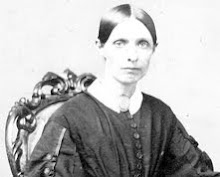
RICHMOND, Va. — A glass vial stopped with a cork during the Civil War has been opened, revealing a coded message to the desperate Confederate commander in Vicksburg on the day the Mississippi city fell to Union forces 147 years ago.
The dispatch offered no hope to doomed Lt. Gen. John C. Pemberton: Reinforcements are not on the way.
The encrypted, 6-line message was dated July 4, 1863, the date of Pemberton's surrender to Union forces led by Ulysses S. Grant, ending the Siege of Vicksburg in what historians say was a turning point midway into the Civil War.
The message is from a Confederate commander on the west side of the Mississippi River across from Pemberton.
"He's saying, 'I can't help you. I have no troops, I have no supplies, I have no way to get over there,' " Museum of the Confederacy collections manager Catherine M. Wright said of the author of the dispiriting message. "It was just another punctuation mark to just how desperate and dire everything was."
The bottle, less than 2 inches in length, had sat undisturbed at the museum since 1896. It was a gift from Capt. William A. Smith, of King George County, who served during the Vicksburg siege.
It was Wright who decided to investigate the contents of the strange little bottle containing a tightly wrapped note, a .38-caliber bullet and a white thread.
"Just sort of a curiosity thing," said Wright. "This notion of, do we have any idea what his message says?"
The answer was no.
Wright asked a local art conservator, Scott Nolley, to examine the clear vial before she attempted to open it. He looked at the bottle under an electron microscope and discovered that salt had bonded the cork tightly to the bottle's mouth. He put the bottle on a hotplate to expand the glass, used a scalpel to loosen the cork, then gently plucked it out with tweezers.
The sewing thread was looped around the 6 1/2-by-2 1/2-inch paper, which was folded to fit into the bottle. The rolled message was removed and taken to a paper conservator, who successfully unfurled the message.
But the coded message, which appears to be a random collection of letters, did not reveal itself immediately.
Eager to learn the meaning of the code, Wright took the message home for the weekend to decipher. She had no success.
A retired CIA code breaker, David Gaddy, was contacted, and he cracked the code in several weeks.
A Navy cryptologist independently confirmed Gaddy's interpretation. Cmdr. John B. Hunter, an information warfare officer, said he deciphered the code over two weeks while on deployment aboard an aircraft carrier in the Pacific. A computer could have unscrambled the words in a fraction of the time.
"To me, it was not that difficult," he said. "I had fun with this and it took me longer than I should have."
The code is called the "Vigenere cipher," a centuries-old encryption in which letters of the alphabet are shifted a set number of places so an "a" would become a "d" — essentially, creating words with different letter combinations.
The code was widely used by Southern forces during the Civil War, according to Civil War Times Illustrated.
The source of the message was likely Maj. Gen. John G. Walker, of the Texas Division, who had under his command William Smith, the donor of the bottle.
The full text of the message to Pemberton reads:
"Gen'l Pemberton:
You can expect no help from this side of the river. Let Gen'l Johnston know, if possible, when you can attack the same point on the enemy's lines. Inform me also and I will endeavor to make a diversion. I have sent some caps (explosive devices). I subjoin a despatch from General Johnston."
The last line, Wright said, seems to suggest a separate delivery to Pemberton would be the code to break the message.
"The date of this message clearly indicates that this person has no idea that the city is about to be surrendered," she said.
The Johnston mention in the dispatch is Gen. Joseph E. Johnston, whose 32,000 troops were encamped south of Vicksburg and prevented from assisting Pemberton by Grant's 35,000 Union troops. Pemberton had held out hope that Johnston would eventually come to his aid.
The message was dispatched during an especially terrible time in Vicksburg. Grant was unsuccessful in defeating Pemberton's troops on two occasions, so the Union commander instead decided to encircle the city and block the flow of supplies or support.
Many in the city resorted to eating cats, dogs and leather. Soup was made from wallpaper paste.
After a six-week siege, Pemberton relented. Vicksburg, so scarred by the experience, refused to celebrate July 4 for the next 80 years.
So what about the bullet in the bottom of the bottle?
Wright suspects the messenger was instructed to toss the bottle into the river if Union troops intercepted his passage. The weight of the bullet would have carried the corked bottle to the bottom, she said.
For Pemberton, the bottle is symbolic of his lost cause: the bad news never made it to him.
The Confederate messenger probably arrived to the river's edge and saw a U.S. flag flying over the city.
"He figured out what was going on and said, 'Well, this is pointless,' and turned back," Wright said.
The Associated Press.





















